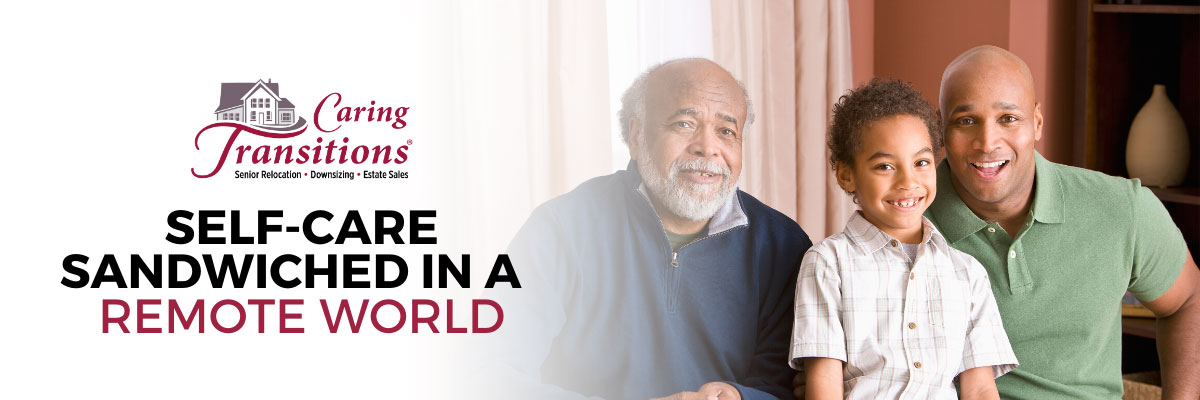
As the population ages, there is a unique position that has emerged for many who are raising their own children and caring for their aging parents. The sandwich generation is perfectly juxtaposed between two sets of loved ones closest to their heart.
Public health issues like COVID-19 emerge and encourage society to seek safe solutions that would benefit both our aging and young populations, creating a new normal. For parents in the Sandwich Generation, this can create stressful moments that push the need for self-care to the forefront.
July is both Sandwich Generation and Self-Care month. Here are a few tips to place a priority on mental, physical, and emotional health while caring for loved one’s with a separate set of equally important needs:
Avoid Information Overload
This digital age can bombard anyone with messages from every angle and device. It’s important to streamline your information resources to reputable and trustworthy outlets that fit what you need to know when you need it. The Caring Across Generations organization suggests seeing “if your city has an alert system so you can set it and forget it or stick to trusted resources like the Center for Disease Control (CDC) or the World Health Organization (WHO) for up-to-date information.” They also suggest erring on the side of caution as you scroll social media since all information is not created equal. It’s pertinent to remember “some information on social media such as Facebook, Twitter, and YouTube may not be backed by science or fact – so take what you read and learn outside of trusted resources with a grain of salt.”
Streamline Family Updates
If you’re taking the lead in your loved one’s care, giving updates to different family members at different times can become a behemoth task. These updates can be streamlined with the help of technology like group texts and video calls. The same tools you use for work or to keep up with friends during this pandemic, can be useful if you’re the information source for your family. Shelby Myers, a special needs advocate with Bayada Home Health Care, an international nonprofit home health care provider told experts at care.com group texts “can allow family members to quickly relay information and alleviate lengthy conversations,” despite seeming impersonal. It’s important to save yourself the time and the possible emotional drain of repeating a message. Myers says, in some cases it may be difficult and “you just can’t talk about the situation one more time, but people will understand.”
Be Transparent
Whether it’s communicating with an employer, children, spouse, or family members, prioritize transparency as you set expectations and boundaries for what you can do at such a unique time. Caregiving is a complex task on it’s own, yet it has increased in complexity with restrictions on travel, resources, and visitation in senior communities. Consider the following tips for setting realistic expectations:
- Be willing to communicate openly and honestly with children about how to keep their aging loved one’s safe.
- Help family members involved in caring for aging loved ones find their niche or preferred task. This will help spread responsibility evenly.
- Talk to your employer about the risks of coronavirus for families who have multiple care needs across generations and discuss work flexibility as a solution to tackling sandwich caregiver duties.
- If your loved one is receiving care while aging in place, in a senior community, or will be moving to a senior facility, find resources that will work with your schedule and their needs.
Recharge Yourself
The stress of expending energy in fractured places — for children still in the home, toward aging or ailing parents, and all other relationships — while maintaining a career or time to oneself can feel draining. It’s important to find time to:
- Do something you love
- Take a few moments to yourself
- Spend quality time with family
- Take deliberate time to decompress
“Self-care is not only essential for the caregiver — it is essential for the well-being of the entire family,” says Niro Feliciano, LCSW, a psychotherapist and anxiety specialist who works with a number of sandwich generation caregivers to experts at care.com. “You can’t pour from an empty cup.”
Sources: